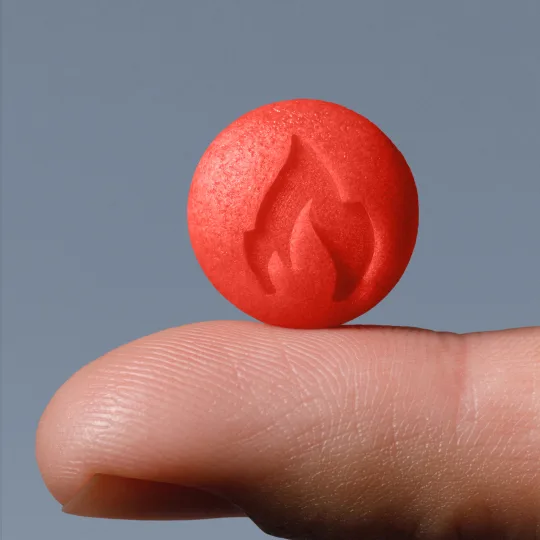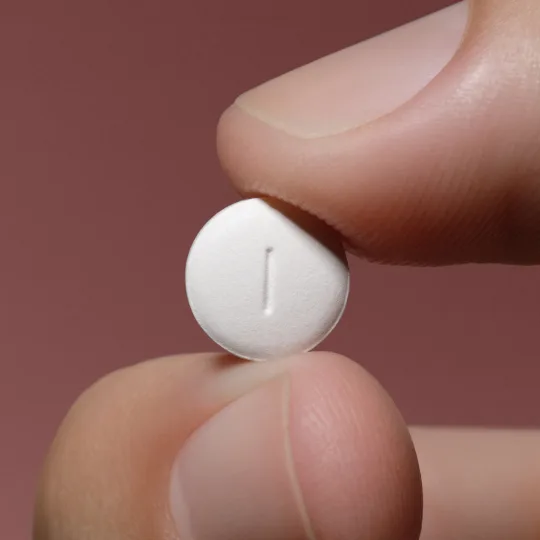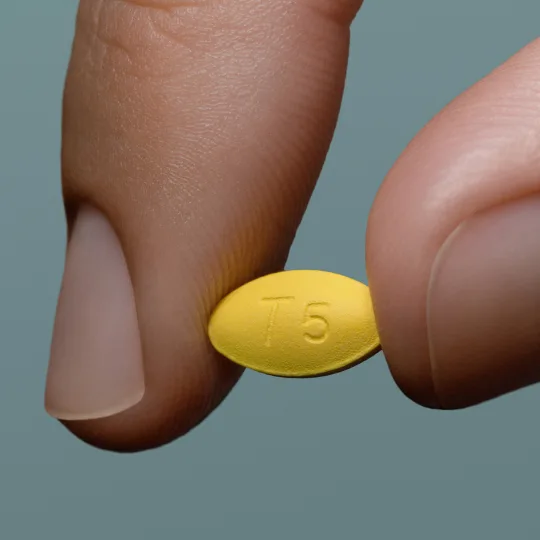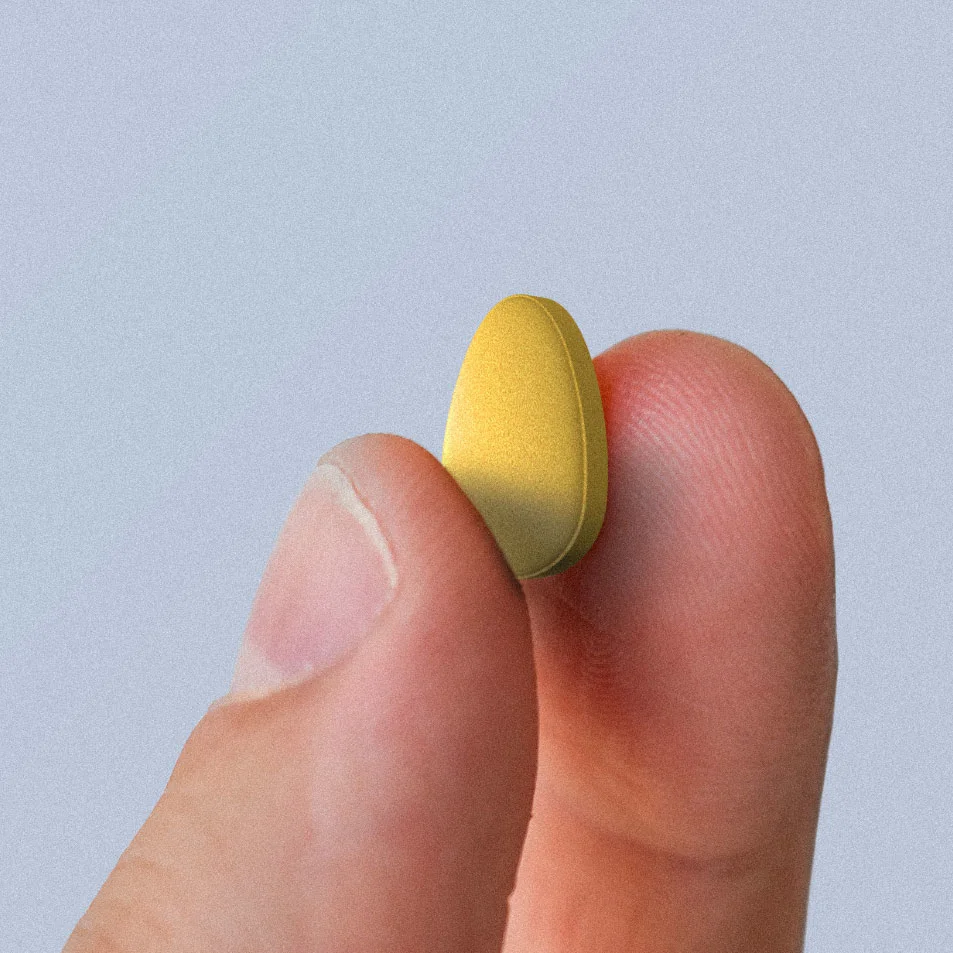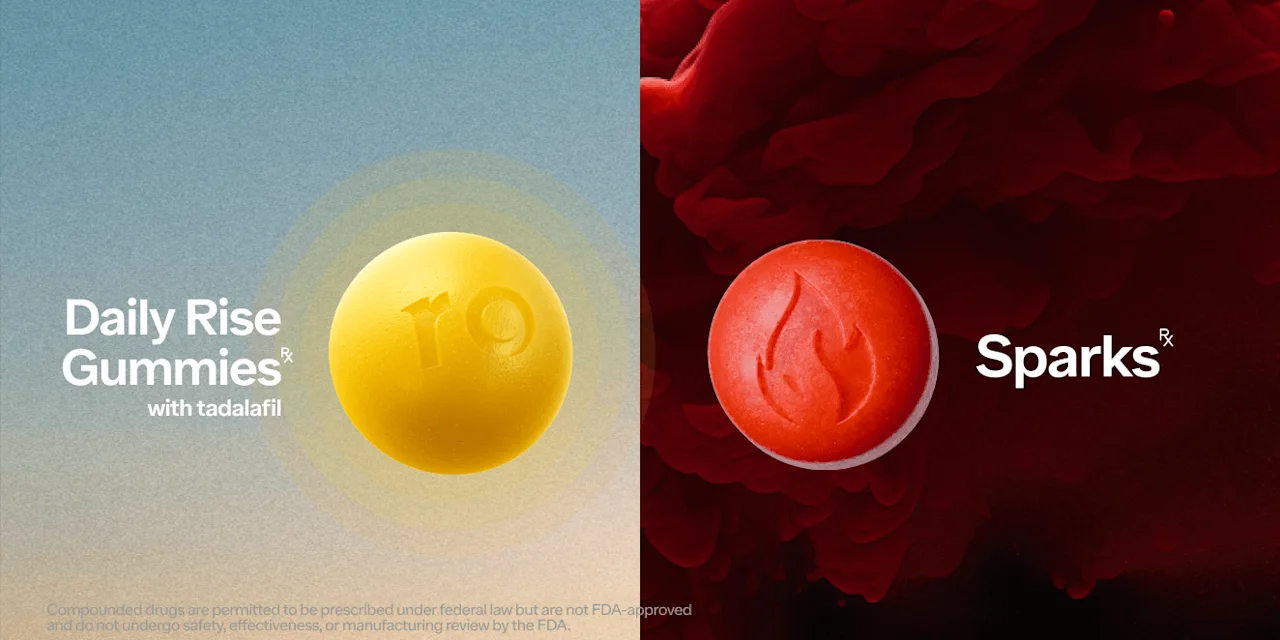Key takeaways
Cialis (tadalafil) can subtly lower blood pressure, but this effect is usually mild.
Cialis shouldn’t be mixed with nitrates as the two can interact and cause dangerously low blood pressure.
Though Cialis has been found safe for those with treated hypertension, it’s still a good idea to talk to a healthcare professional about taking it alongside antihypertensive (i.e. blood pressure-lowering) drugs.
Here's what we'll cover
Here's what we'll cover
Key takeaways
Cialis (tadalafil) can subtly lower blood pressure, but this effect is usually mild.
Cialis shouldn’t be mixed with nitrates as the two can interact and cause dangerously low blood pressure.
Though Cialis has been found safe for those with treated hypertension, it’s still a good idea to talk to a healthcare professional about taking it alongside antihypertensive (i.e. blood pressure-lowering) drugs.
An estimated 52% of men between 40 and 70 in the United States have erectile dysfunction (ED). But—some good news—ED is often treatable with a prescription drug like Cialis (tadalafil).
As with many medications, Cialis may have some side effects. And after reading the warnings in the package insert, you may wonder: Does Cialis lower blood pressure? On its own, Cialis can cause mild reductions in blood pressure, though it’s generally considered safe to take with blood pressure-lowering medications.
Keep reading to learn more about whether Cialis lowers blood pressure, other potential side effects, and known drug interactions.
Does Cialis lower blood pressure?
Cialis has been shown to lower blood pressure, though only slightly. The risk for low blood pressure, or hypotension, while taking Cialis may be greater when taking certain medications or consuming alcohol in excess.
In a 2022 trial, participants taking 20 mg of tadalafil—the active ingredient in the generic version of Cialis—experienced a modest reduction in blood pressure, though no serious adverse events were observed. On average, tadalafil taken alone lowered systolic blood pressure (SBP) by 5 mmHg and diastolic blood pressure (DBP) by 4 mmHg.
It does not seem to affect blood pressure to a significant extent in people with no other health concerns. During clinical trials of the drug, researchers measured the blood pressures of people taking 20 mg of Cialis and those taking a placebo. They measured blood pressure while people were both standing up and lying down. On average, decreases in blood pressure were minimal (a drop of 0.2/4.6 mmHg while standing up and 1.6/0.8 mmHg while lying down). No participants in the clinical trial had a major drop in blood pressure.
But what about in people with hypertension already taking blood pressure-lowering medication? Most of what we know about this comes from a 2022 analysis of 72 clinical studies. Researchers looked at the effects of the drug—taken as‐needed, once‐daily, or a mix of both and in doses ranging from 2 to 100 mg—on blood pressure levels in men taking antihypertensive drugs (e.g. beta-blockers, ACE inhibitors). The evidence found that tadalafil can yield small drops in blood pressure but doesn’t increase hypotension-related events (think: dizziness and fainting) when co-administered with antihypertensive therapies. Ultimately, they found that tadalafil can be considered safe when taken with other drugs that control blood pressure.
Though the aforementioned findings suggest it’s generally safe to take Cialis in tandem with blood pressure-lowering medications, caution is still necessary. That’s because Cialis may also contribute to hypotension when taken with other prescription drugs and excessive alcohol, which we will touch on later.
Have better sex with Ro
How does Cialis work?
Cialis is approved by the US Food and Drug Administration (FDA) for use in adult males to:
Treat erectile dysfunction (the inability to get or keep an erection long enough for sexual intercourse)
To reduce signs and symptoms of benign prostatic hyperplasia (BPH), an enlarged prostate
To treat ED and BPH when experienced at the same time
As mentioned above, tadalafil is the active ingredient in Cialis. It (and, thus, Cialis) belongs to a class of medications known as phosphodiesterase-5 enzyme inhibitors or PDE-5 inhibitors for short. Other medications in this class used to treat ED include:
Vardenafil (previously available as brand-name Levitra)
Stendra (avanafil).
Cialis works by relaxing smooth muscle cells in blood vessels, which widens them and increases blood flow. It does this by inhibiting or blocking an enzyme known as PDE-5. This enzyme breaks down the chemical pathway that causes smooth muscle cell relaxation. Blocking this process results in long-lasting smooth muscle cell relaxation. In the penis, the increase in blood flow can help individuals achieve and maintain an erection. However, Cialis doesn’t give you an automatic erection—you will still need sexual stimulation to experience its boner-boosting effects.
Note that Cialis differs from the other PDE-5 inhibitors in a few ways. Depending on your healthcare professional’s instructions, you can either take Cialis as needed before sexual activity or at a low dose once daily. The amount of time Cialis stays in your body is longer than similar drugs in its class, making it effective for up to 36 hours after you’ve taken a dose. Both of these features can make it a convenient option since it allows stimulation and intercourse to happen more spontaneously.
Other side effects of Cialis
Like all medications, Cialis comes with a risk of side effects. Knowing side effects ahead of time will help you know what to look for and expect when taking it and whether it’s the right drug for you.
Common side effects of Cialis include:
Headache
Indigestion, upset stomach, or heartburn
Back pain
Muscle pain
Nasal congestion
Upper respiratory tract infections
Flushing, including facial flushing (when your skin becomes hot and red)
Pain in your arms or legs
Dizziness
Cough
Changes in color vision presenting as a slight blue tinge around objects
While rare, people taking Cialis might also experience serious side effects. The following is not a complete list of possible side effects. Be sure to contact your healthcare provider or seek medical attention right away if you experience the following adverse effects:
A painless decrease in vision in one eye
Hearing loss
Priapism, a painful, prolonged erection lasting four hours or longer
Skin blistering, a severe rash, or other signs of an allergic reaction
Skin cancer and prostate cancer have also been reported in people who took Cialis, though more research is required to determine whether there actually is a link. In addition, because of an increased risk of cardiovascular events during or after sexual activity, such as heart attack and stroke, Cialis isn’t typically recommended for people with significant heart problems or cardiovascular disease. Your heart needs to be healthy enough for sex before considering Cialis for ED—after all, intercourse in and of itself can put a strain on your ticker.
Cialis drug interactions and risks
Again, like any other Rx medication, Cialis isn’t necessarily a fit or safe for everyone. Before prescribing Cialis, your healthcare provider will review your medical history, list of medications and supplements you’re currently taking, and any underlying health conditions or risk factors to determine if the drug may be right for you.
One reason for the thorough pre-prescription workup? The fact that certain medications can negatively interact with Cialis. Nitrate drugs, for example, can cause severe hypotension when taken with Cialis. Nitrates are used to prevent or treat angina, a type of chest pain. Examples of nitrates:
Nitroglycerin tablets (NitroStat) or patches
Isosorbide mononitrate
Isosorbide dinitrate
To be safe, nitroglycerin should be taken at least 48 hours after a dose of Cialis. If you develop angina symptoms (e.g. chest pain, pressure, tightness, or pain in the chest, shortness of breath, dizziness) but have already taken Cialis in the past two days, you should not take a nitrate drug without checking your vital signs (e.g. pulse, blood pressure) first. Instead, seek emergency medical care and tell the staff you’ve recently taken Cialis.
In addition, Cialis should not be taken with a guanylate cyclase stimulator drug like Adempas (riociguat) or Verquvo (vericiguat)—medications used to treat pulmonary hypertension or heart failure. Taking Cialis with either of these drugs may also cause extremely low blood pressure.
Combining Cialis with substantial amounts of alcohol can also be dangerous since both can cause drops in blood pressure. When taken with excessive amounts of alcohol, Cialis can cause hypotension that you might notice when you go from sitting to standing.
While Cialis can lower blood pressure, it’s not contraindicated in those with treated hypertension. Still, it’s a good idea to use caution when taking Cialis alongside antihypertensive drugs because its blood pressure-lowering effects may be additive.
In addition to those taking the aforementioned drugs, Cialis may also not be a fit for people with certain health conditions. The medication is generally not recommended for people with:
Recent stroke or heart attack (in the last 90 days)
Chest pain during sexual activity
Heart failure
Uncontrolled arrhythmias, low blood pressure (hypotension), or uncontrolled high blood pressure (hypertension)
What about taking Cialis with alpha-blocker medications, such as those that are prescribed for urinary flow (e.g. tamsulosin, alfuzosin, silodosin)? Men who were taking alpha-blockers were not included in clinical trials of Cialis. That, plus the fact that both drugs could lead to low blood pressure, there’s a warning about co-administration. Rest assured, Cialis has now been used in millions of men who take alpha-blocker medications with a good safety profile.
If Cialis isn’t safe for you, your healthcare provider can offer personalized medical advice on other ED treatment options. Before taking Cialis always make sure you have been cleared for the medication and have been cleared for sexual activity.
Signs of dangerously low blood pressure from Cialis
Though Cialis usually results in small drops in blood pressure, hypotension can sometimes occur. Combining Cialis with certain drugs, such as nitrates, can cause severely low blood pressure, for example.
Healthcare professionals generally define hypotension as having a systolic pressure of less than 90 mmHg or a diastolic pressure of less than 60 mmHg. This can cause symptoms like
Dizziness
Lightheadedness
Blurred vision
Nausea
Weakness
Hypotension can be dangerous and, in most cases requires immediate medical attention. If you experience any of these symptoms while taking Cialis, talk to your healthcare provider.
Does Cialis raise blood pressure?
There’s evidence that Cialis lowers blood pressure, but no clinical studies have reported elevated blood pressure as a known side effect of the medication.
In many cases, hypertension may not cause symptoms. That’s why it’s a good idea to check your blood pressure occasionally. By the time, blood pressure causes symptoms such as headache or visual changes, it is considered an emergency. If you are experiencing these symptoms, seek medical attention immediately. Even if you’re not experiencing symptoms, your blood pressure can be a good topic to discuss at your regular healthcare visits.
Bottom line: Cialis and low blood pressure
Low blood pressure isn’t as common as high blood pressure, but that doesn’t make it any less important to watch out for. When taking any new medication, you should always discuss your medical history and current list of medications with your doctor. When taking Cialis, keep in mind:
Cialis can cause modest reductions in blood pressure on its own. This effect is usually minor, and in those taking the medication as needed, it’s even less likely to significantly lower blood pressure.
Cialis isn’t contraindicated in individuals with treated hypertension, so it’s generally considered safe to take it while on some medications that control high blood pressure. However, it shouldn’t be combined with nitrates. Discuss your medications and dosages with a healthcare provider before deciding whether treatment is safe for you.
Taking Cialis with certain medications, and even alcohol, can potentially amplify its blood pressure-lowering effects, which could cause your blood pressure to go into dangerously low territory.
If you experience symptoms of hypotension while taking Cialis, such as lightheadedness, dizziness, or feeling like you are about to pass out, you should seek medical attention and let your healthcare provider know. It’s a good idea to have your blood pressure levels routinely checked while taking Cialis to identify the effects the medication might be having.
Frequently asked questions (FAQs)
How much does Cialis drop blood pressure?
Cialis can cause small drops in blood pressure. It usually causes blood pressure to drop by a few units, but effects can vary, depending on the individual. Taking Cialis with certain medications, such as nitrates, can cause blood pressure to drop to dangerously low levels.
Can you use Cialis with high blood pressure?
Erectile dysfunction is more common in individuals with high blood pressure. Researchers have studied the combination of ED and antihypertensive drugs and found that, at least with some classes of antihypertensive medication, they are generally safe to use at the same time. That being said, every person is different, and this may also depend on the doses of blood pressure medicines you take. So, be sure to share your full medical history and list of medications and supplements that you’re currently taking with your healthcare provider; this can help them determine whether Cialis may be a fit and safe option for you.
What is the most common side effect of Cialis?
The most common side effects of Cialis include headache, indigestion, back and muscle pain, flushing, and stuffy nose. Cialis can also cause abnormal vision. Other, less common side effects are also possible. When in doubt, speak directly with a healthcare provider.
Does Cialis help blood circulation?
Cialis works in part by relaxing smooth muscle cells in blood vessels. This widens them and allows for increased blood flow. So yes, Cialis can help blood circulation, but it’s not common to take Cialis for that purpose alone.
DISCLAIMER
If you have any medical questions or concerns, please talk to your healthcare provider. The articles on Health Guide are underpinned by peer-reviewed research and information drawn from medical societies and governmental agencies. However, they are not a substitute for professional medical advice, diagnosis, or treatment.
Cialis Important Safety Information: Read more about serious warnings and safety info.
Viagra Important Safety Information: Read more about serious warnings and safety info.
DailyMed. (2022). Cialis (tadalafil) tablets, for oral use. Retrieved on Mar. 11, 2025 from https://dailymed.nlm.nih.gov/dailymed/drugInfo.cfm?setid=bcd8f8ab-81a2-4891-83db-24a0b0e25895
Dhaliwal, A. & Gupta, M. (2022). PDE5 inhibitors. StatPearls. Retrieved on Mar. 11, 2025 from https://www.ncbi.nlm.nih.gov/books/NBK549843/
Fahmy, G. & Hess, J. (2024). Tadalafil. StatPearls. Retrieved on Mar. 11, 2025 from https://www.ncbi.nlm.nih.gov/books/NBK603743/
Huang, S. A. & Lie, J. D. (2013). Phosphodiesterase-5 (PDE5) inhibitors in the management of erectile dysfunction. P & T: A Peer-Reviewed Journal for Formulary Management, 38(7), 407–419. Retrieved on Mar. 11, 2025 from https://www.ncbi.nlm.nih.gov/pmc/articles/PMC3776492/
Kloner, R. A., Kostis, J. B., McGraw, T. P., et al. (2022). Analysis of integrated clinical safety data of tadalafil in patients receiving concomitant antihypertensive medications. Journal of Clinical Hypertension (Greenwich, Conn.), 24(2), 167–178. doi: 10.1111/jch.14435. Retrieved on Mar. 11, 2025 from https://pmc.ncbi.nlm.nih.gov/articles/PMC8845471/
Lee, J. Y., Park, S. Y., Jeong, T. Y., et al. (2012). Combined tadalafil and α-blocker therapy for benign prostatic hyperplasia in patients with erectile dysfunction: a multicenter, prospective study. Journal of Andrology, 33(3), 397–403. doi: 10.2164/jandrol.111.013185. Retrieved from https://pubmed.ncbi.nlm.nih.gov/21868753/
Lee, P. M. & Gerriets, V. (2023). Nitrates. StatPearls. Retrieved on Mar. 11, 2025 from https://www.ncbi.nlm.nih.gov/books/NBK545149/
Pauls, M. M. H., Binnie, L. R., Benjamin, P., et al. (2022). The PASTIS trial: Testing tadalafil for possible use in vascular cognitive impairment. Alzheimer's & Dementia : The Journal of the Alzheimer's Association, 18(12), 2393–2402. doi: 10.1002/alz.12559. Retrieved on Mar. 11, 2025 from https://pmc.ncbi.nlm.nih.gov/articles/PMC10078742/
Rehman, S. & Hashmi, M. F. (2022). Blood pressure measurement. StatPearls. Retrieved on Mar. 11, 2025 from https://www.ncbi.nlm.nih.gov/books/NBK482189/
Sooriyamoorthy, T. & Leslie, S. W. (2024). Erectile dysfunction. StatPearls. Retrieved on Mar. 11, 2025 from https://www.ncbi.nlm.nih.gov/books/NBK562253/
U.S. Food and Drug Administration (FDA). (2017). Highlights of prescribing information: Cialis (tadalafil) tablets, for oral use. Retrieved on Mar. 11, 2025 from https://www.accessdata.fda.gov/drugsatfda_docs/label/2017/021368s029lbl.pdf
U.S. Food and Drug Administration (FDA). (2015). Questions and Answers for Cialis (tadalafil). Retrieved on Mar. 11, 2025 from https://www.fda.gov/drugs/postmarket-drug-safety-information-patients-and-providers/questions-and-answers-cialis-tadalafil


